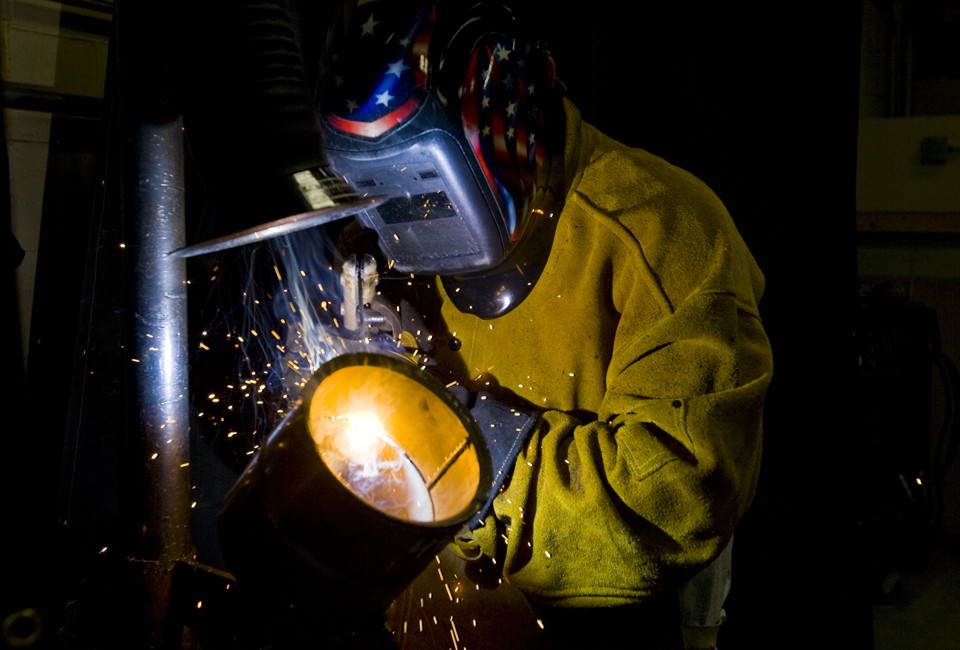How Girls in Blue-Collar Communities Are Being Left Behind
Schools often offer vocational classes at the expense of advanced courses, which can leave young women with few options.

National debate about where students should go after they finish high schoolgenerally favors college as the path to success. Yet several states have ramped up vocational training in the past several years in an attempt to equip kids with enough skills to land decent-paying jobs right after they pick up their diplomas.
In 2013, Texas made graduation requirements that had previously emphasized college readiness friendlier to vocational education, now typically called career-and-technical education, or CTE. Michigan and Louisiana have also strengthened programs intended to prepare students for lucrative blue-collar jobs. And a bipartisan group in Congress recently backed a bill that would give states more flexibility in how they develop CTE.
While there’s fierce discussion about the benefits and drawbacks of promoting career training in high schools, largely overlooked is whether such training affects girls differently than boys. But according to a new study spearheaded by a sociologist at Cornell University and set to be published in the August issue of the American Sociological Review, high-school training in blue-collar communities disadvantages women.
April Sutton and her co-authors, Amanda Bosky and Chandra Muller from the University of Texas at Austin, found that high schools in blue-collar communities often offer vocational training in response to the needs of the local labor market. That by itself isn’t necessarily a bad thing, but schools often focus on vocational or technical training at the expense of advanced math and other courses that are designed to prepare students to succeed in college.
When those college-prep courses are superseded by vocational classes, both young men and women are, predictably, less likely to enroll in a four-year college. Young men seem to fare just fine when this happens. They frequently take the vocational courses that are offered and find jobs in industries like construction or oil that pay well, sometimes even more than work requiring a four-year college Vocational Training in Blue-Collar Communities Helps Boys, Disadvantages Girls - The Atlantic:
